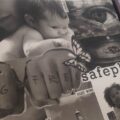
By Dan Mushens
Loraine Radcliffe has been living with a diagnosis of alcohol-related brain damage (ARBD) for nearly a decade. “My bad times were really bad,” she recalls, “I have vague memories of the day I now refer to as ‘day one’, the day I was at my lowest, but also the day I began to repair my mind, body and soul.”
Although Loraine had always liked a drink, it was when her marriage ended in divorce and her two children left home that things really began to spiral out of control. “I didn’t have a reason to hide it anymore. It must have been blatantly obvious to those around me, but I’d always deny I’d been drinking and would say I was fine even though I could barely stand up, I was in complete denial.”
With her family gone, Loraine found herself alone, addicted to alcohol and suffering from depression. “A bottle of vodka a day would be the usual. I had so much to deal with that I was overwhelmed; the breakdown of a dysfunctional marriage, the onset of ARBD and two kids that didn’t want to know me. All this and I was still attempting to hold down a succession of jobs to pay the bills.
“It wasn’t until ‘day one’ that things began to change. On one of the few occasions my son came over to see me, he found a drunken mother in a heap on the kitchen floor, barely conscious and bereft of self-respect.”
Rehabilitation
Her son called an ambulance and after a short while in the local hospital, Loraine was admitted to Castle Craig rehab clinic in the Scottish borders. She spent the best part of a year there and found the intensive talking therapies a big shock, but she embraced the opportunity that had been presented to her and completed the course.
“It was around this time that I discovered I was going to be a grandmother. My daughter, who I rarely saw, was pregnant and I knew that unless I at least attempted to turn my life around, my grandchild would only know me as ‘that old alkie’.”
After her stay in Castle Craig, Loraine returned to the familiarity of Glasgow. She had had to give up the tenancy on her flat when she was in hospital, so moved into supported accommodation for about six months. “I was just glad to be back in Glasgow,” she says. “I managed to remain abstinent for the majority of the time and found AA meetings to be a good source of peer support. I had my own wee room but couldn’t go out into the community without being accompanied by staff.
“By this time, my granddaughter had been born and I was lucky enough to have met her on the one or two occasions that my daughter visited.
She was just amazing and she gave me the extra push to carry on with my recovery, it’s as if she was an important piece of the jigsaw.
I don’t think my recovery would be as successful as it has been, had she not come along and saved me.”
After completing all the group work courses it was time to move on again. Loraine was offered the chance to move into a service with fewer restrictions, meaning she could come and go without staff.
She moved into Scottish mental health charity Penumbra’s ARBD supported accommodation with a sense of renewed optimism and energy. “The staff gave me my own space and didn’t pressurise me to take part in activities or group discussions, there was a genuine focus on my own rehabilitation, to re-learn the life skills that I’d forgotten or that my memory and anxiety wouldn’t allow me to tackle. My chronic back pain was also a source of depression.”
With only a single relapse during her stay here, Loraine’s next and hopefully final move came in January 2015. Loraine was again supported by Penumbra when she relocated into her own tenancy, this time by its ARBD supported living service.
“I love my wee flat,” she says. “I don’t need a castle or a palace, I just need a place to call my own, a place where I feel safe.
“The support I received in my home was a different kind of support. It wasn’t intrusive and I didn’t feel as if I was being told what to do, those things are important to me, it’s as if the support was tailored to my personality and not to my medical diagnosis.”
Loraine admits that keeping on top of her finances and bills was a real problem when she first moved into her flat and it caused her considerable anxiety. Therefore, as well as supporting her with abstaining from alcohol, this was an area that her care team prioritised.
“I was supported to go through my finances with a fine toothcomb to try and maximise my income. We found some discrepancies with my disability living allowance and eventually I received a backdated payment of nearly £1,000.”
Supporting others
She was also encouraged to contact the pension tracing service. After several months of form filling and phone calls, Loraine was delighted to receive a lump sum of £1,000 pounds from a pension she’d paid into for just a few months 20 years earlier.
“I was supported with things that I’d never even think about, it wasn’t all just about Loraine the alcoholic!”
There are also things Loraine has achieved without support; she regularly attends AA meetings and openly discusses her experiences of alcoholism and ARBD. She enjoys trying to support others who are going through what she once did.
To her delight, she has also regained contact with her son and daughter. “Instead of just the odd visit every now and again, I’m in weekly, sometimes daily, contact with my kids and I see my granddaughter most weeks.”
Safety net
When Loraine’s care plan was reviewed in early 2016, her recovery was said to have reached such a stage that support from the Penumbra ARBD supported living service could come to an end.
Loraine didn’t agree, but acknowledges that she was simply scared of supporting herself without a safety net. “When the social worker told me my support would be coming to an end, I felt scared, just the thought of it made me feel nauseous. Now, I believe that it was actually the final piece of my recovery jigsaw.
“I’m in a better place today than I was five years ago. ‘With my family around me and my granddaughter in my life, I’m a better person. There’s no way she’s going to know her granny as ‘the old alkie’.”






 Bournemouth, Christchurch and Poole
Bournemouth, Christchurch and Poole  Hampshire County Council
Hampshire County Council  Lincolnshire County Council
Lincolnshire County Council  Norfolk County Council
Norfolk County Council  Northamptonshire Children’s Trust
Northamptonshire Children’s Trust  South Gloucestershire Council
South Gloucestershire Council  Wiltshire Council
Wiltshire Council  Wokingham Borough Council
Wokingham Borough Council  Children and young people with SEND are ‘valued and prioritised’ in Wiltshire, find inspectors
Children and young people with SEND are ‘valued and prioritised’ in Wiltshire, find inspectors  How specialist refugee teams benefit young people and social workers
How specialist refugee teams benefit young people and social workers  Podcast: returning to social work after becoming a first-time parent
Podcast: returning to social work after becoming a first-time parent  Podcast: would you work for an inadequate-rated service?
Podcast: would you work for an inadequate-rated service?  Family help: one local authority’s experience of the model
Family help: one local authority’s experience of the model  Workforce Insights – showcasing a selection of the sector’s top recruiters
Workforce Insights – showcasing a selection of the sector’s top recruiters 

 Facebook
Facebook X
X LinkedIn
LinkedIn Instagram
Instagram
Delighted to hear Lorraine’s story – just a shame that support like Castle Craig appears to be a postcode lottery. Positive my mum would still be hear if she has received this intensive support.